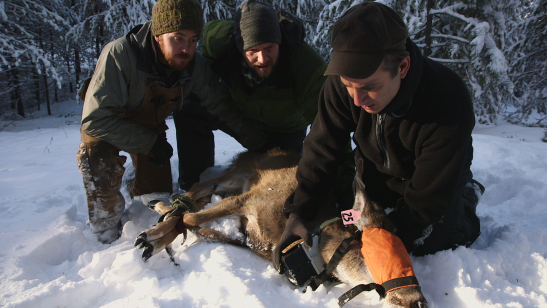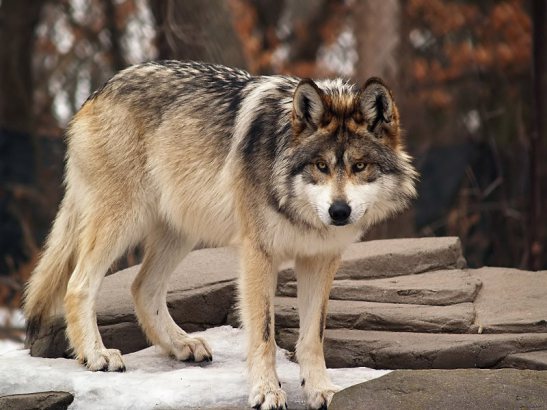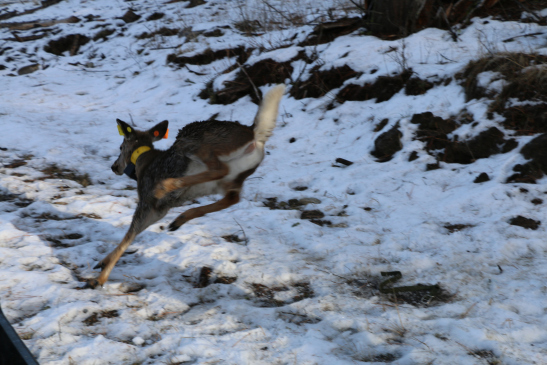Washington Grey Wolf
Gray wolf populations are spreading into many areas in the Western United States. Researchers are studying factors affecting deer survival and how deer respond to the presence and absence of wolves. The project strives to understand how re-colonizing gray wolves might impact mule and white-tailed deer.
Washington Gray Wolf Project (2013-Present)
In 2013, SCI Foundation partnered with the Washington Wolf Project. Researchers from the University of Washington launched the Washington Wolf Project to study how deer behaviorally respond to the presence and absence of wolves, as well as deer survival. The project’s key focus is to investigate how re-colonizing gray wolves are impacting mule and white-tailed deer.
Since 2013 the project has used GPS collars and camera collars to monitor 72 mule deer and 68 white-tailed deer. (Camera collars are GPS collars with a built-in video camera that allows you to capture footage from the field and see what the animals see in the wild.) Both collar types have been deployed in wolf and non-wolf areas. To date 24 deer have died, with hunting being the primary cause of mortality.
Researchers have also deployed 64 remote game cameras across the landscape in a grid. This has allowed them to collect data on multiple predators and prey throughout the areas. They are also using them to monitor the presence of wolves and the foraging behavior of deer. The remote game cameras will continue to collect images of wildlife to monitor behavior until the study is complete in 2017.
The research is ongoing, but some general findings are starting to take shape. Wolves do not appear to be a major source of mortality for mule deer and white-tailed deer in this study; only one deer has been confirmed to have been killed by wolves. This does not mean wolves do not eat deer; deer hair is regularly detected in wolf scat. But they may not be killing enough deer to impact their population numbers. However, this does not mean wolves have no effect on deer. Deer may be shifting their habitat use due to wolf predation risk, which can impact deer nutrition and their susceptibility to other predators, including humans.
This research is already beginning to show the impacts wolves have on deer populations in Washington. The Washington Department of Fish and Wildlife is interested in expanding the research to further explore how wolf-prey interactions might necessitate a change in ungulate and predator management strategies. The expanded study could provide scientific evidence to help update the state’s wolf management plan.

Since 2000, SCI Foundation has provided more than $80 million to promote science-based conservation through wildlife research, capacity building in governments, youth and teacher education, and humanitarian programs that show the importance of the hunting community in society around the world. Growth of SCI Foundation has continued to gain momentum through charitable donations from SCI members and direct grants from local chapters and the SCI organization. Throughout the world, SCI’s approximately 50,000 members and 190 chapters contribute time, talent, and financial support to local, national, and international projects.



